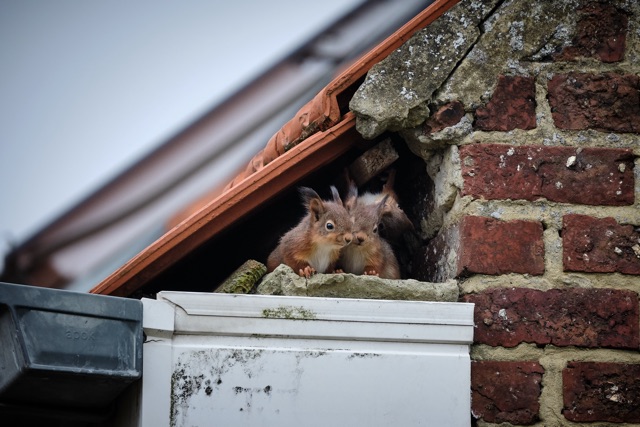
Squirrels become more busy as autumn approaches, preparing for the colder months ahead. While these vivacious critters add to the rural scenery, they may also be a nuisance when they get into rural dwellings. Squirrel infestations in the fall can cause property damage as well as significant health risks. Rural homeowners, on the other hand, may protect their properties and dwell peacefully with these acrobatic rodents with adequate preventative and squirrel-proofing techniques. This essay will look at efficient ways to reduce fall infestations and squirrel-proof rural homes.
Entry Points for Seals:
The first step in minimizing fall squirrel infestations is to look for potential entry openings in your property. Because squirrels can squeeze through microscopic holes, even the smallest breaches in the roofline, vents, or siding should be sealed. To block access points and keep squirrels out, use long-lasting materials like galvanized steel mesh or metal flashing.
Tree Branches Should Be Trimmed:
Squirrels are adept climbers and jumpers, gaining access to rooftops and attics by exploiting tree branches. Trim branches close to your home’s exterior to create a buffer zone that makes it more difficult for squirrels to access your property. Pruning trees not only prevents pests but also reduces the chance of limbs falling during storms.
Set up One-Way Doors:
If squirrels have already invaded your home, consider installing one-way doors to allow them to leave. One-way doors allow squirrels to leave but prohibit them from returning, enabling a humane and successful elimination approach. Once all squirrels have left, permanently seal the entry locations to prevent future infestations.
Bird Feeders that are Squirrel-Proof:
Squirrels hunting for an easy meal may be drawn to bird feeders. Invest in squirrel-proof bird feeders that include devices that keep squirrels away while yet allowing birds to eat the seeds. Placement of feeders away from the exterior of your property might help lessen the likelihood of squirrels getting inside.
Garbage Bins that are Secure:
Squirrels are opportunistic feeders, meaning they may dig through waste to find food. To keep squirrels and other wildlife out of your rubbish, use sturdy, animal-resistant garbage cans with tight lids. Clean the area around the dumpsters on a regular basis to avoid leaving any food sources that can attract them.
Strengthening Attic Spaces:
It is critical to reinforce access to your attic areas to prevent squirrels from nesting in your home. Protect roof vent covers and plumbing vent covers with galvanized steel mesh to prevent squirrels from getting in. Additionally, fasten the drip edge of the roof to prevent squirrels from prying it open to gain entry.
Natural deterrents should be used:
Consider utilizing natural deterrents around your home to keep squirrels at bay. Planting strong-smelling herbs like mint or sprinkling cayenne pepper near entrance points might create an unpleasant environment for squirrels.
Educate Your Children:
Educate everyone in your household on the necessity of squirrel prevention. Make it clear to children that they should not feed or approach wildlife, as this may encourage them to stay.
Preventing fall infestations and squirrel-proofing rural homes necessitates a multifaceted and proactive approach. Homeowners can make their environment less appealing to squirrels by sealing entrance points, cutting tree branches, utilizing one-way doors, and applying natural deterrents. To prevent squirrels from nesting in your home, reinforce attic areas with protective covers for roof vents, plumbing vents, and securing the roof’s drip edge. Taking these precautions not only protects your property from damage, but it also promotes peaceful coexistence with the wildlife around you. When dealing with squirrel problems in rural areas, remember that compassionate and environmentally friendly methods are always the best option. Rural households can enjoy the beauty of fall without worrying about unwanted squirrel guests if the correct tactics are in place.
